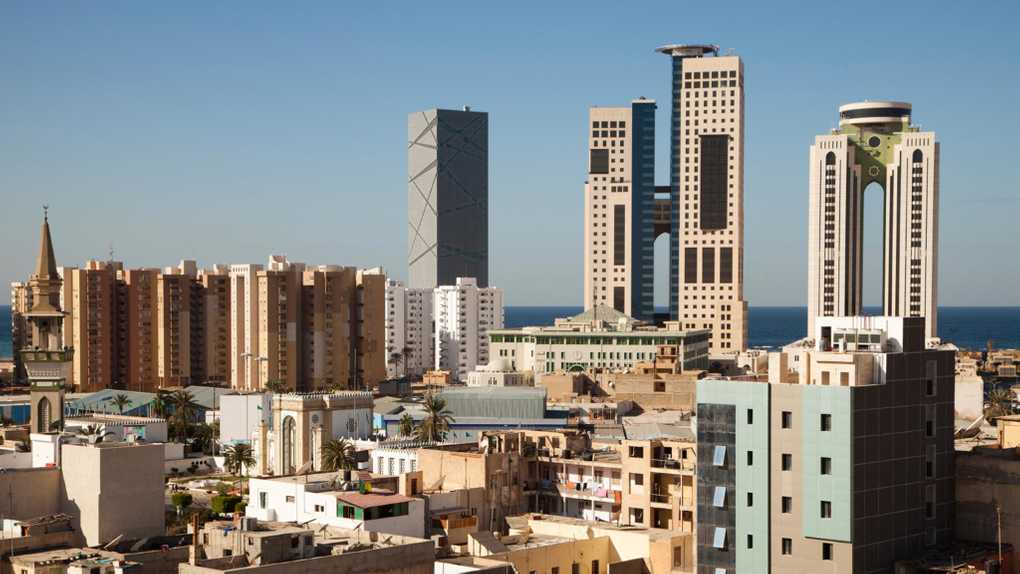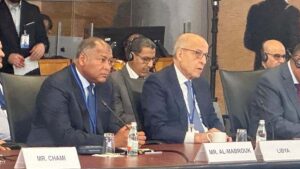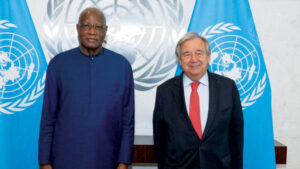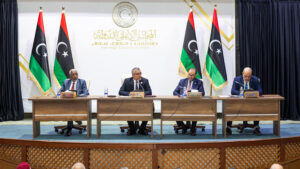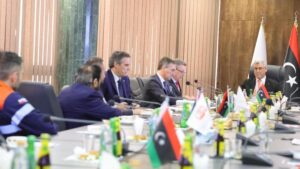The international and regional conferences on the Libyan crisis are returning to the top with broad Libyan participation that includes different sides from Libya.
The wider Libyan involvement had taken place after the initiative of Libyan stability, which was suggested by the Government of National Unity (GNU). On Tuesday, the head of the Presidential Council (PC), Mohamed El-Mnefi, had praised Algeria’s role in supporting the stability and security in Libya. Al-Mnefi considered the ministerial meeting in Algeria due to his meeting with the Algerian president, Abdul-Majeed Tebboune, in July.
In the same context, the Foreign Minister, Najlaa Al-Mangoush, announced last week that she had discussed the preparations for an international conference on Libya with the UN convoy to Libya, Jan Kubis. She said that the expected conference would be organised by Libya and some other countries involved in the Libyan issue. She added that the conference would talk about GNU’s initiative.
It is worth mentioning that the Prime Minister of the GNU, Abdul-Hamid Al-Dbaiba, announced his initiative last July. He said it would concentrate on securing the coming elections, reuniting the army and security institutions, and dealing with mercenaries and foreign forces. He also talked about the constitutional side of the elections.
In his initiative, Al-Dbaiba mentioned the national reconciliation, confirming that the PC’s responsibility is to work on it. He also talked about economic stability and providing better services for Libyan citizens.
In another context, there are preparations in Morocco to host another conference to gather Libyan sides, including the head of the High State Council (HSC), Khaled Al-Meshri, and the House of Representatives (HoR) speaker, Ageela Saleh. The Moroccan foreign minister, Naser Burita, and the PC member, Abdullah Al-Lafi, met last Wednesday in Rabat to stress the significance of meetings on Libya to confront the difficulties that face the Libyan elections.
On the other side, the PC member, Moussa Al-Koni, had visited Sudan and Tchad to discuss borders issues between Libya and the two countries to secure the borders from armed groups. Al-Koni called Sudan, Tchad, and Niger to participate with Libya in a defence conference in September.
Observers noticed the retreatment of some regional capital cities from dealing with the Libyan issues to leave space for the neighbouring countries under the supervision of the United States.
The observers referred to the US Ambassador to Libya, Richard Norland, who met Egyptian and Turkish officials last couple of weeks. On the other hand, some say that the Libyan crisis is a Libyan issue that the Libyans should resolve because the international community has no problem if the Libyans decide to sort out the issue and come to solutions and end the crisis.

